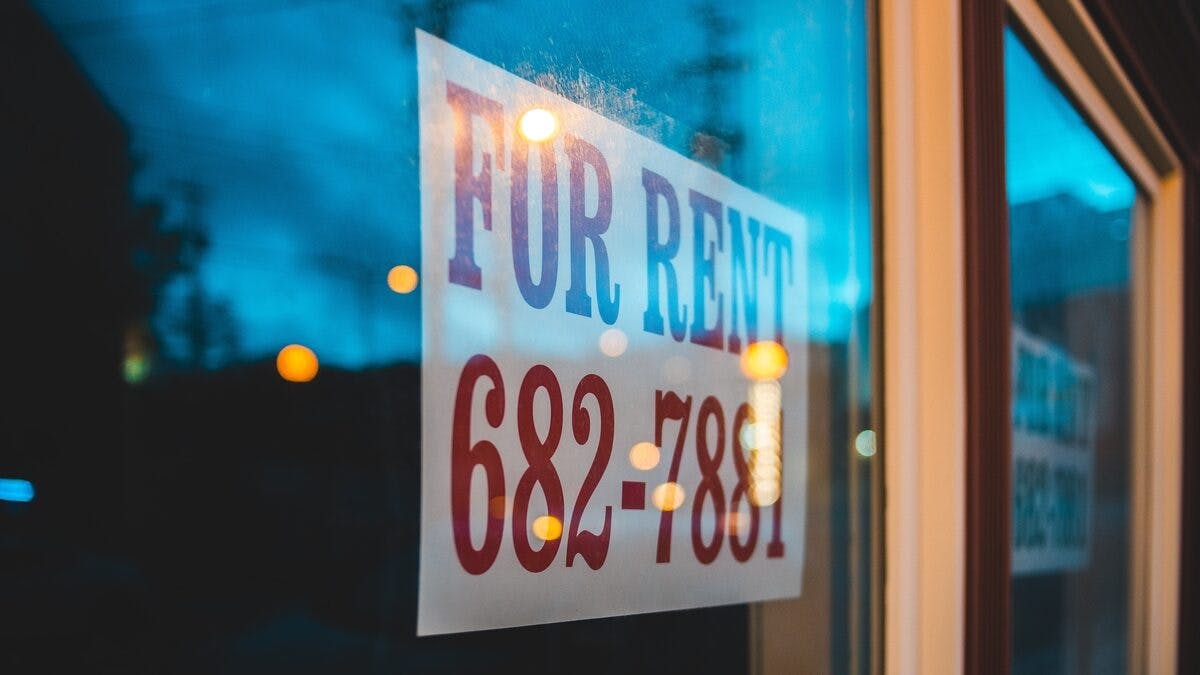As the latest Domain Rent Report for the December quarter reveals, Melbourne is facing a housing crisis as rents have soared to record levels.
The median apartment rent is now at a staggering $450 per week, a staggering 20 per cent increase from the previous year.
This steep rise in rent prices has sparked fears of homelessness and housing stress for low-income households as they struggle to keep up with these exorbitant prices. Small business owners, who strive to provide fair wages for their employees, are facing a difficult challenge as the cost of housing, particularly rent, continues to rise.
Despite their efforts to increase wages, the increasing cost of housing is making it harder for them to keep pace. The high cost of housing, especially the rise in rent, is causing concern among small business owners, as the burden of high housing costs is putting pressure on their employees’ ability to afford a place to live.
The inflation figures recently released by the Australia Bureau of Statistics have confirmed the rising cost pressures in housing, particularly regarding rental prices and property values.
According to the data, inflation accelerated to 7.3 per cent during November, the highest inflation rate since 1990. This means that prices for goods and services are now rising at their fastest pace in over 30 years.
Master Builders Australia CEO Denita Wawn has stated that these figures are a clear indication that urgent policy action is needed to address the housing crisis in Australia. She argues that the rising cost of housing is making it increasingly difficult for both renters and buyers to afford a home and that this is detrimental to the economy as a whole.
Wawn suggests that the government needs to take immediate action to increase the supply of affordable housing through measures such as tax incentives for developers and funding for affordable housing projects.
She also calls for policies that aim to increase competition in the housing market, such as loosening restrictions on foreign investment and encouraging new entrants to the market.
“While monetary policy using interest rate rises is starting to show fruits in putting downward pressure on the demand side, more needs to be done to tackle the supply side bottlenecks relating to material, labour and housing supply.
“We acknowledge that the RBA has a difficult balancing approach to take in curbing inflation but at the same time not getting too ahead of the realised impact of their decisions.
“However, the most sustainable solution to the inflationary problem lies on the supply side, through bringing down the cost of doing business. The requires issues like labour shortages, materials costs, and the regulatory burden to be dealt with in a focussed and urgent manner,” said Ms Wawn.
Over the year to November, the cost of buying a newly-built home rose by 17.9 per cent.
“Housing continues to be the inflationary canary in the coal mine with figures reflecting huge increases in the cost of building materials, as well as continued shortages of key construction trade workers,” said Ms Wawn.
Rents are also accelerating and are up to 3.6 per cent over the past year.
“Growing pressures in the rental market are being exacerbated by persistently low building volumes in the higher density part of the housing market.
“Labour shortages can best be addressed over the short and medium term by making it easier for migrants to work in Australia. The bottlenecks in our migration system need to be addressed as a matter of priority.
“The continued ramping up of the regulatory burden on our industry is making it much more costly for building businesses to do their work, contributing to housing inflation,” said Ms Wawn.
Need for more community housing
The Community Housing Industry Association Victoria (CHIA) is calling for immediate action to address the record high rents in Melbourne. According to an analysis conducted by CHIA last year, over 146,100 Victorian households are currently unable to afford the homes they need.
This number is projected to balloon to 223,200 by 2041 if no intervention is taken. The study also revealed that three of Australia’s top ten highest areas of unmet housing needs are located in Melbourne.
Community housing is a form of affordable housing that operates alongside private housing in the open market. Community housing organisations are typically non-profit groups that work to meet the housing needs of those who cannot afford to purchase or rent a home in the private market.
CHIA Victoria acting CEO Jess Pomeroy said more social and affordable housing is important in solving the rental crisis.
“More and more Victorians are being priced out of the rental market and presented with limited options for a secure home. While rents in Victoria remain high and vacancy rates tight, the need for more social and affordable housing will only continue to grow,” she said.
“The state’s historic investment in the Big Housing Build has been a solid start to correct the decades of under investment in social housing. But clearly it’s not enough, and even with the Commonwealth’s housing commitments Victoria won’t be able to meet growing housing need.
“Victoria needs at least 60,000 new social homes over the next decade – that’s 6,000 units every year – to meet the growing need.
“We’re calling on the Victorian Government to extend its extraordinary investment in social housing by committing to a long-term pipeline of funding to build the homes that Victorians need, and heavily involve not-for-profit community housing organisations who can provide the best value for money.”
Keep up to date with our stories on LinkedIn, Twitter, Facebook and Instagram.

